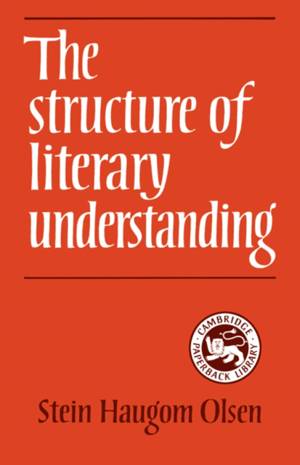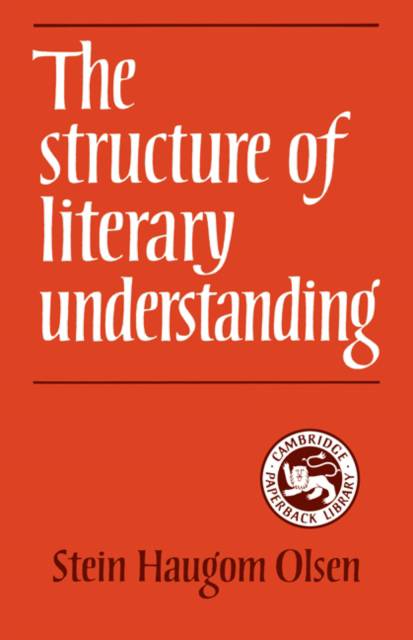
- Afhalen na 1 uur in een winkel met voorraad
- Gratis thuislevering in België vanaf € 30
- Ruim aanbod met 7 miljoen producten
- Afhalen na 1 uur in een winkel met voorraad
- Gratis thuislevering in België vanaf € 30
- Ruim aanbod met 7 miljoen producten
Zoeken
€ 72,45
+ 144 punten
Omschrijving
How does a reader respond to a work of literature and how does he begin to evaluate it? Mr Olsen attempts to answer these and related questions. The book is in two parts. In the first three chapters, the author demolishes established theories that literature has a special language, provides a heightened insight into 'truth' and has emotion as its prime currency. In the remaining chapters Mr Olsen constructs and fully illustrates the theory that understanding of a work of literature comes in two complementary stages: first, judgements about the author's aesthetic intentions (interpretation); second, appreciation of the aesthetic qualities of the work (evaluation). At the end of his argument, attempting an answer to the question 'Why is literature important?', Mr Olsen characterizes literature as an institution and thus forges links with contemporary philosophy which sees all human action as ordered and defined by social institutions.
Specificaties
Betrokkenen
- Auteur(s):
- Uitgeverij:
Inhoud
- Aantal bladzijden:
- 248
- Taal:
- Engels
Eigenschappen
- Productcode (EAN):
- 9780521316316
- Verschijningsdatum:
- 22/02/1985
- Uitvoering:
- Paperback
- Formaat:
- Trade paperback (VS)
- Afmetingen:
- 140 mm x 216 mm
- Gewicht:
- 317 g

Alleen bij Standaard Boekhandel
+ 144 punten op je klantenkaart van Standaard Boekhandel
Beoordelingen
We publiceren alleen reviews die voldoen aan de voorwaarden voor reviews. Bekijk onze voorwaarden voor reviews.











